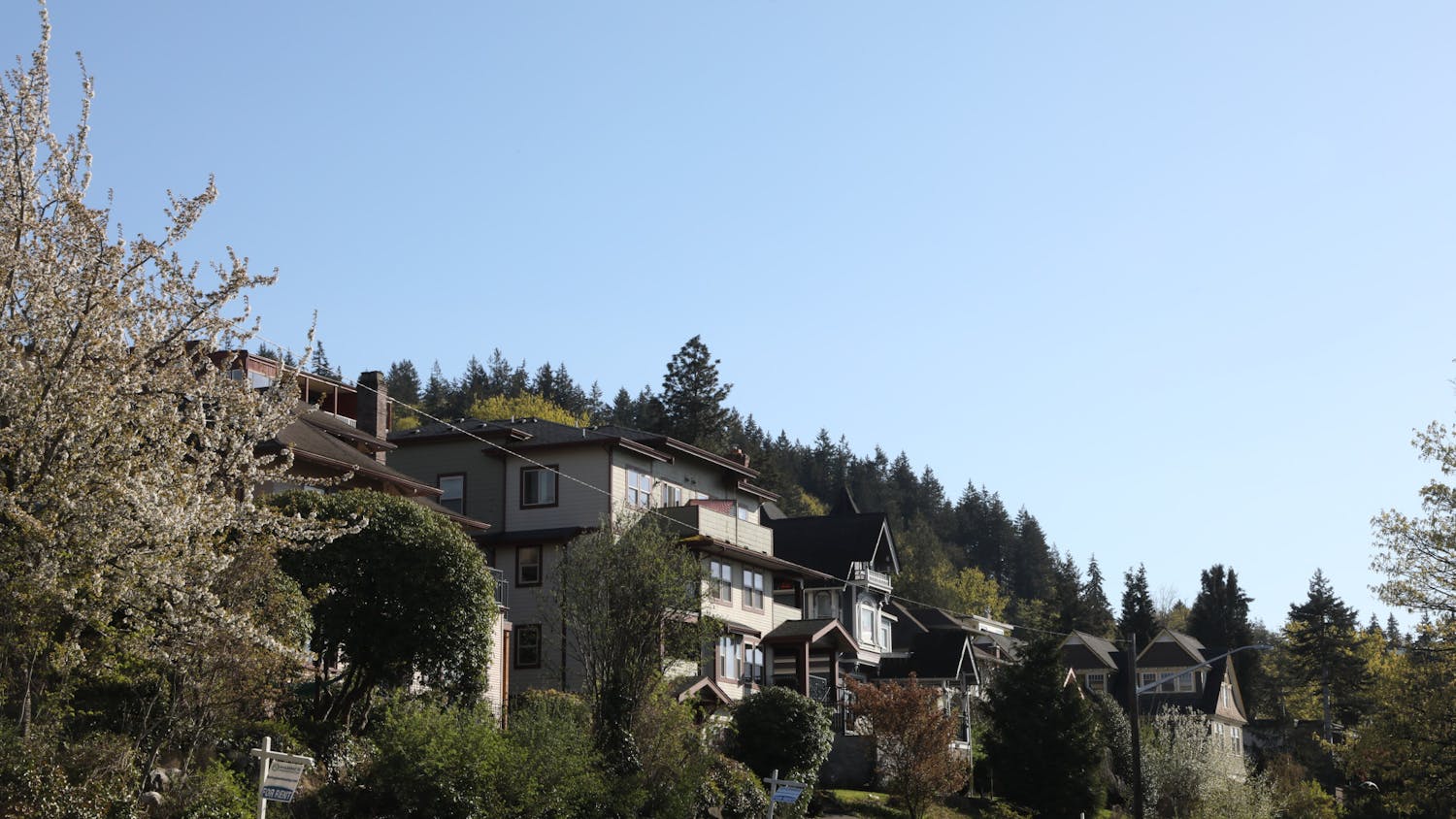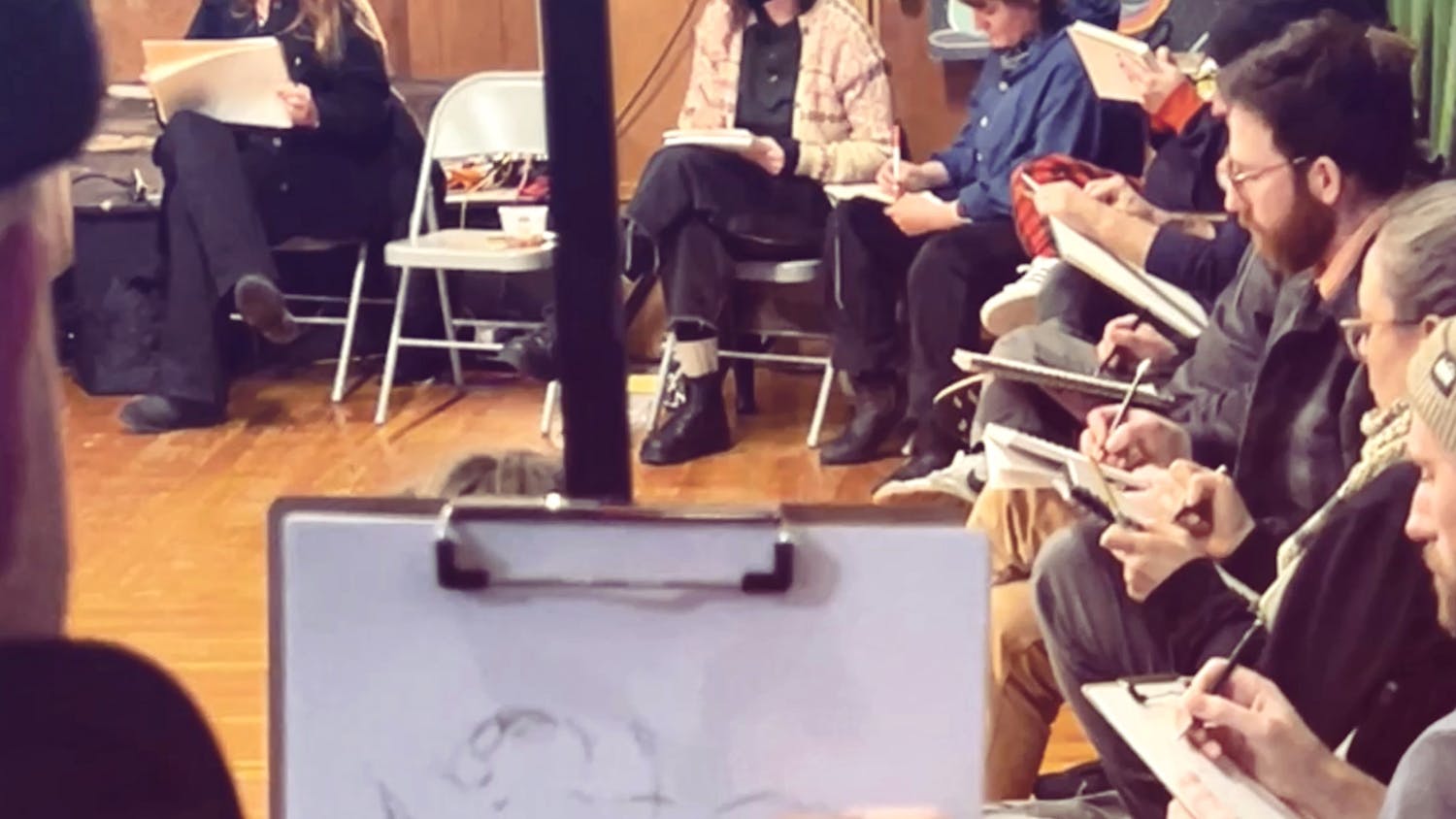Facing a room of audience members, Exquisite Erika addressed the white and white-passing observers.
“If I could say anything to white people, it would be: ‘Listen,’” she said. “Be brave enough to sit with your discomfort.”
Erika is a local activist and leader of the Bellingham Unitarian Fellowship’s Black Lives Matter Ministry Action Team. She was one of the leaders of a discussion led by womxn of color at the 20th Annual Martin Luther King Jr. Conference on Human Rights. The conference was hosted at Whatcom Community College and organized by the Whatcom Human Rights Task Force.
The womxn led the group in a discussion about their experiences with racism, their efforts to create change and the importance of MLK Day. They shared powerful experiences, from surviving sexual assault, to facing implicit and explicit racism, to learning English as a second language.
“The first thing I had to unlearn was that I didn’t do anything wrong,” one participant shared, mentioning racist and exclusionary actions of her classmates.
The emotionally candid discussion received a standing ovation from the conference attendees.
The event was organized in part by Barbara Rofkar, a former Western professor. She now works with the Whatcom Human Rights Task Force, organizing educational workshops and events for the Bellingham community.
“Peace is my personal investment,” Rofkar said.
She said King’s nonviolent activism and advocacy for change through education motivated her to help organize the event and to start the Whatcom Dispute Resolution Center.
The center provides counseling and conflict resolution services to Whatcom County residents, particularly teens and young adults, to resolve domestic disputes or low-level criminal offenses, like truancy and petty theft.
Rofkar said in her time as a professor at Western, she sometimes found herself frustrated with the lack of diversity on campus. Rofkar said she thinks Western has a reputation for being a socially and politically liberal school, but that isn’t always obvious.
“We need to channel that liberalism into action,” Rofkar said.
The free conference also included opening remarks by Chief Tsi’li’xw William (Bill) James of the Lummi Nation, several educational workshops centered around human rights issues and representatives from local nonprofits and activist groups.
One of the workshops offered was “We All Belong: Negotiating Belonging in Academic Spaces that Traditionally Exclude.” It was taught by the director of the Whatcom Community College Learning Center, Jason Babcock, along with Juan Serrano, a student at the college and employee at the school’s Intercultural Center.
During the presentation, Babcock said he thought the conference was immensely important, particularly in the Bellingham community, because of its lack of diversity in its higher education institutions.
According demographic data from Western, the University of Washington and Washington State University, Western has the highest portion of undergraduates who identify as “Caucasian” on their applications — 71.7 percent. WSU and UW had 62.2 percent and 40.3 percent, respectively.
Babcock noted that this lack of diversity in some higher education institutions may be one of the reasons behind elevated dropout rates of queer students and students of color. Babcock and Serrano pushed participants to question why trends like these exist and to reflect on their own experiences and observations that might illustrate this phenomenon.
Other workshops available included: a workshop intended to discuss breaking down social barriers between children at a young age, a workshop aimed at unpacking implicit biases and stereotyping and a presentation by Woodring professor Tracey Pyscher entitled “Rethinking Trauma: What Children and Youth With Histories of Trauma Have to Teach Us.”
Organizations that were represented at the conference included the Whatcom Peace and Justice Center, the Bellingham Public Library, the ACLU and Veterans for Peace.
Lesley Norman, an employee of the Bellingham Public Library, said she volunteered her time to work at the conference so that she could provide books for readers of all ages about the history of the civil rights movement and the work of activists like King.
“We have to recognize that this is not a day off,” Norman said. “We constantly have to keep working.”
The womxn who opened the conference emphasized this same idea: that MLK Day should be a day of motivation and action, not relaxation.
The conference was closed with a slam-poetry reading by Western junior, Dayjha MacMillan.
To find out about upcoming events hosted by the Whatcom Human Rights Task Force, go to their website.





